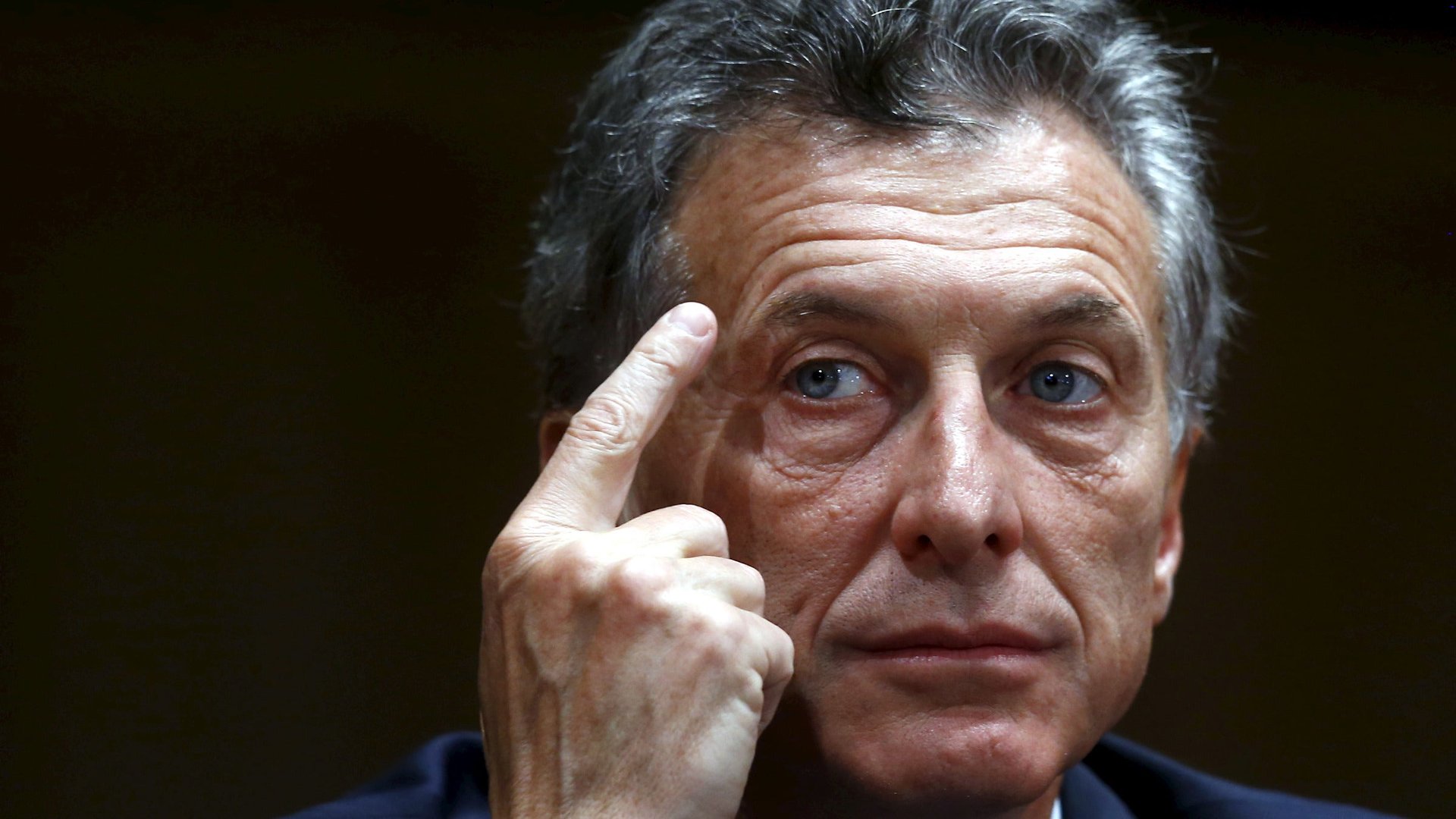Argentina’s new president has one of the toughest jobs in the global economy
Even as he celebrates his upset victory, Argentina’s president-elect, Mauricio Macri, knows he faces political and economic challenges that make his new job one of the toughest in geopolitics.


Even as he celebrates his upset victory, Argentina’s president-elect, Mauricio Macri, knows he faces political and economic challenges that make his new job one of the toughest in geopolitics.
The country has been virtually locked out of global capital markets since it defaulted on its debt in 2001—and it defaulted yet again last year after a battle with US hedge funds that had speculated in the restructured debt. Private companies, meanwhile, have had trouble attracting foreign investment due to fears of nationalization: In 2012, the government re-nationalized the state oil firm YPF, which it had privatized in 1999 by selling a stake to the Spanish firm Repsol. (Repsol settled for $5 billion in 2014.)
The biggest question now in Buenos Aires isn’t whether Argentina’s new center-right president will seek radical changes to economic policy, but whether those changes will be more akin to a band-aid that’s quickly ripped off, or one that’s peeled away slowly.
For the first time since 2002, the last name of Argentina’s president won’t be Kirchner. And for only the third time since 1983, the president will not espouse some variant of Peronist populism.
Under the populist leaders, Argentina spurned the global financial system but prospered nonetheless, largely on the back of a currency devaluation prior to the debt default and the commodities boom of the early 2000s—sales of soy beans, corn, and oil brought in enough capital to grow the economy. But, as commodity prices fell in recent years, the government and its captive central bank have resorted to printing money to increase spending on the social programs that are central to Peronist politics, while also imposing capital and price controls.
This has not worked: Inflation has soared in Argentina, hitting double-digit figures for the last several years; shortages of basic goods have become more common; foreign currency reserves have dwindled; and the country began mis-reporting its economic statistics.
In the midst of mild recession, and expecting little growth in the years to come, voters chose change by the smallest of margins—some 3 percentage points. Macri still faces a legislature dominated by Peronist parties, though he was recognized for working with his opponents during his tenure as Buenos Aires’ mayor.
Among his first plans upon taking office on Dec. 10 are dismantling the capital controls, which will sharply devalue an Argentine peso that currently trades on the black market at nearly twice the official exchange rate. He has also said he will negotiate with the country’s bondholders to restore access to global markets, and attempt to sell Argentina as a reliable and profitable investment destination. Spending cuts, too, are part of Macri’s agenda.
These steps won’t be easy political lifts. Cutting popular subsidies is never easy. The devaluation will likely force Argentina’s government to seek outside financing once again, perhaps from the International Monetary Fund. And the IMF and the global financial system together are decidedly unpopular in Argentina, thanks to the fund’s role in Argentina’s exchange-rate policies before its 2010 default, and thanks to years of demonization by the Kirchner governments.
Investors are thrilled about the possibilities of such a large economy plugging back into the global scene. But even if Macri launches into his agenda with gusto, a painful readjustment will take years—perhaps making his biggest political risk the possibility that Argentine voters just won’t have the patience to see it through.